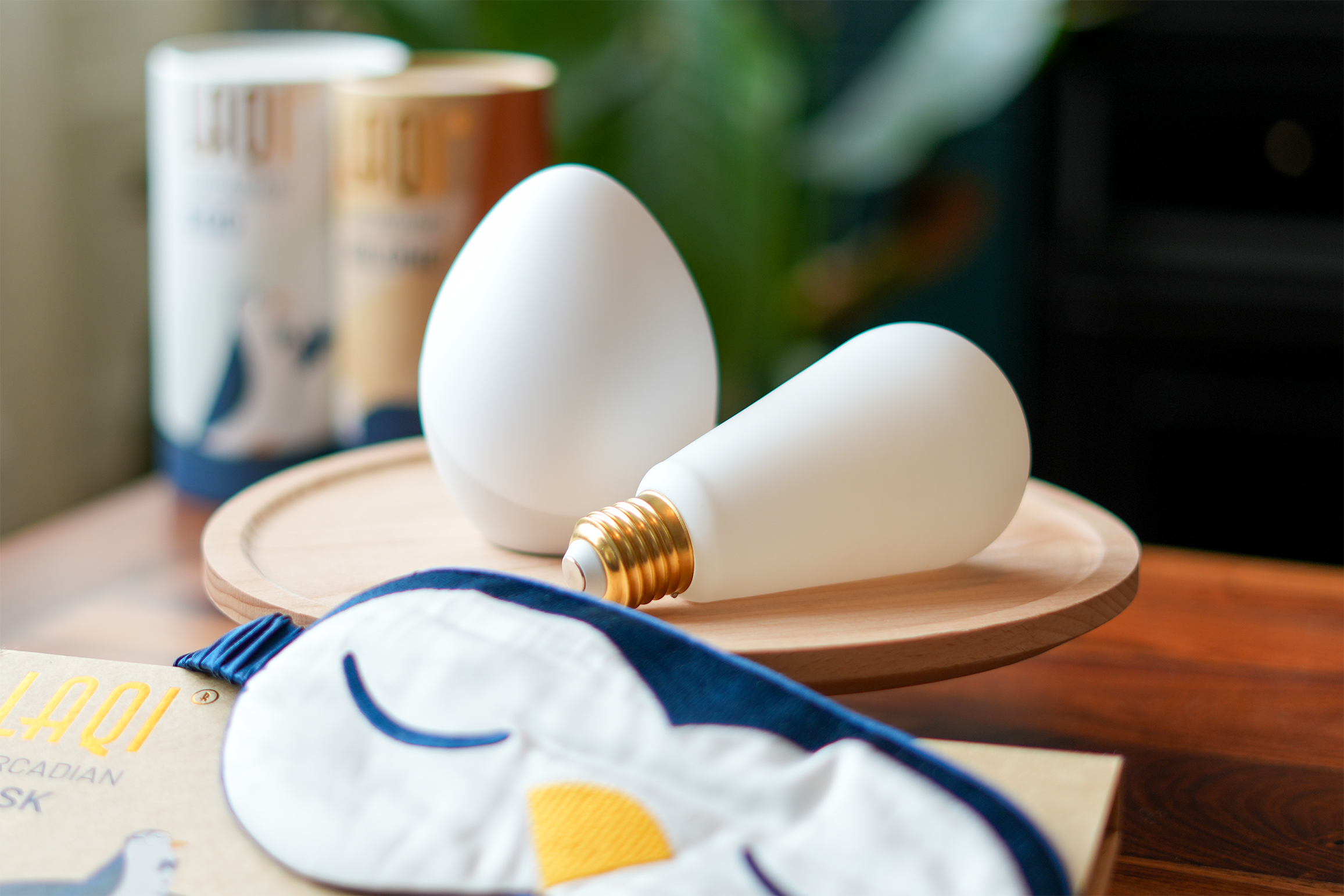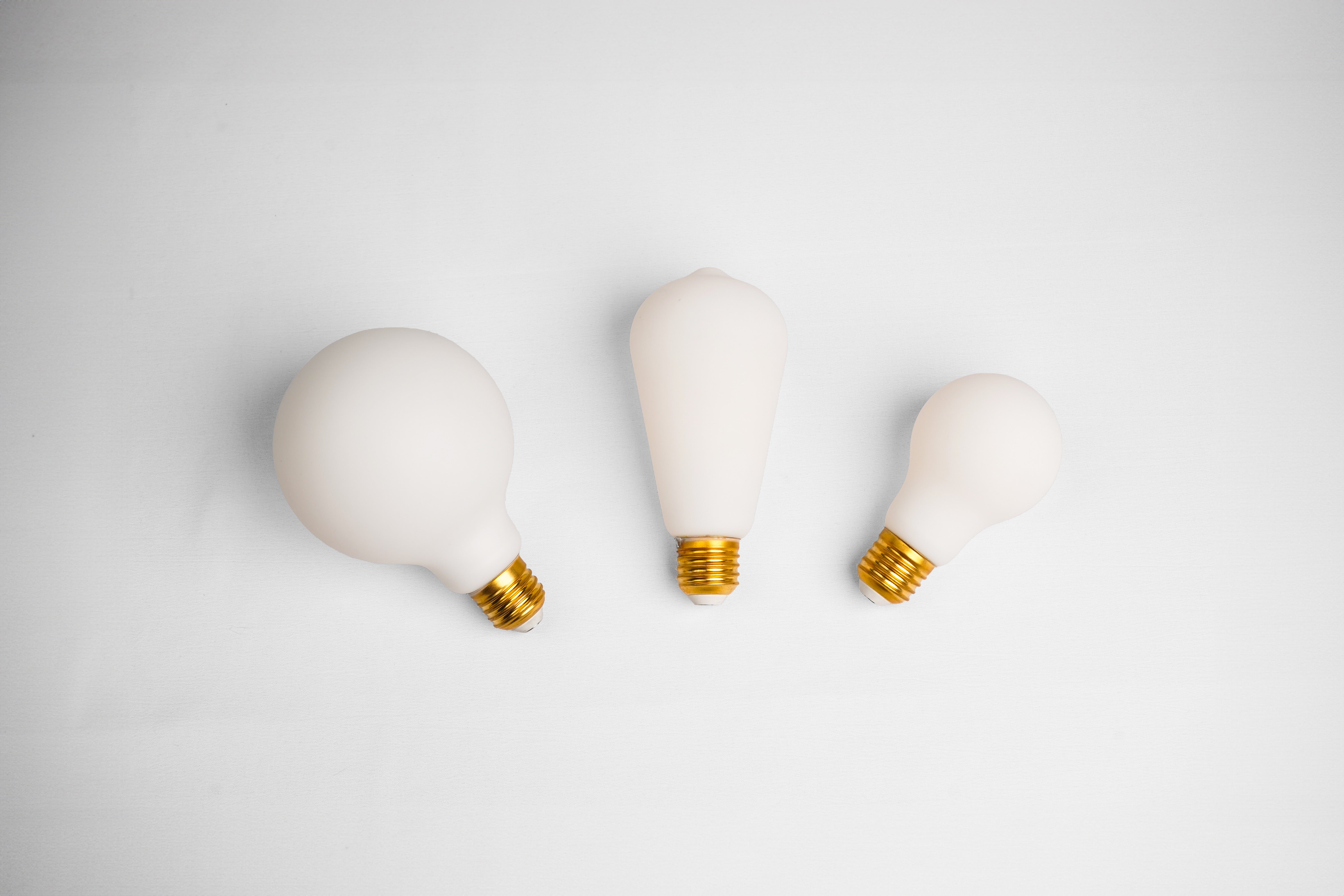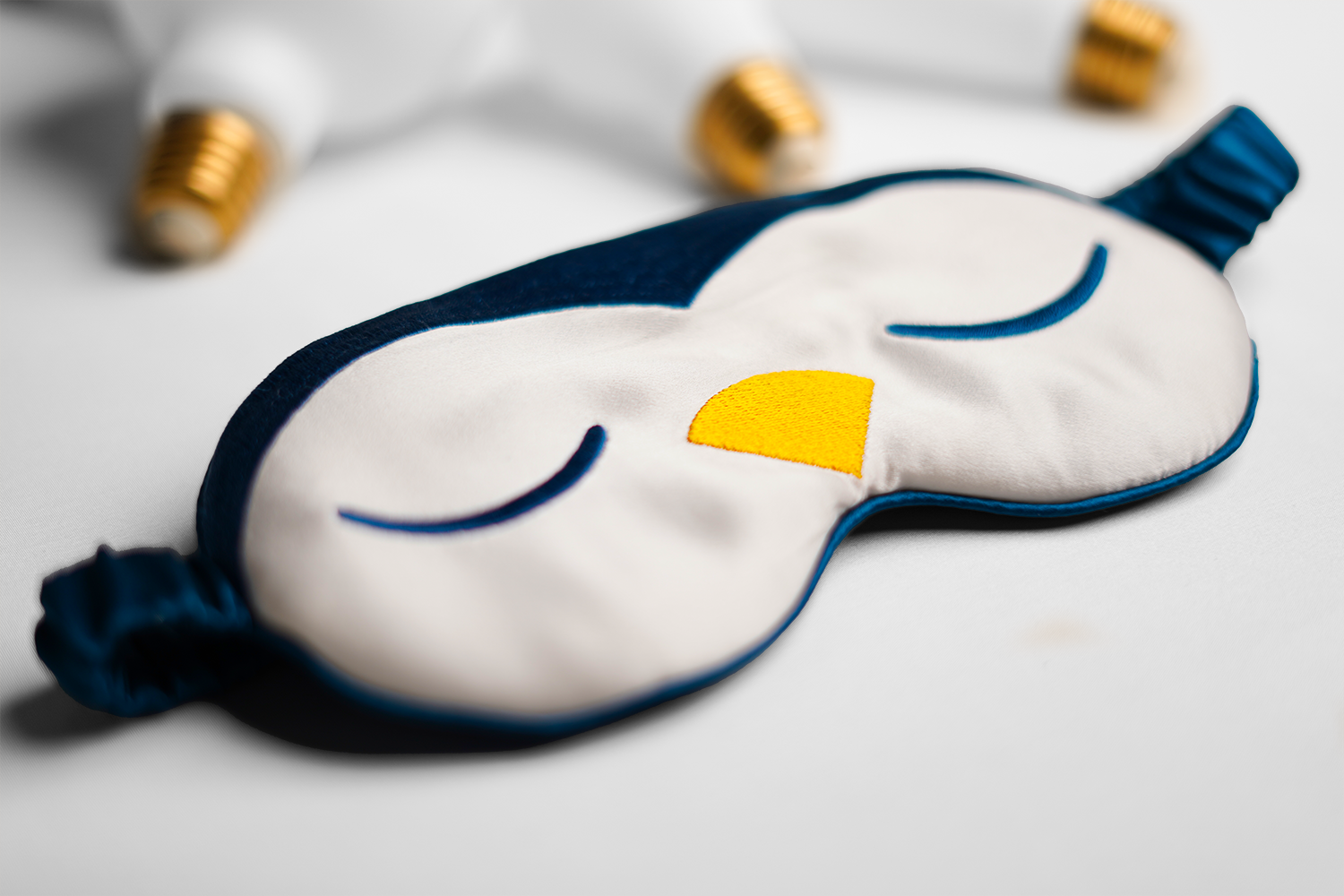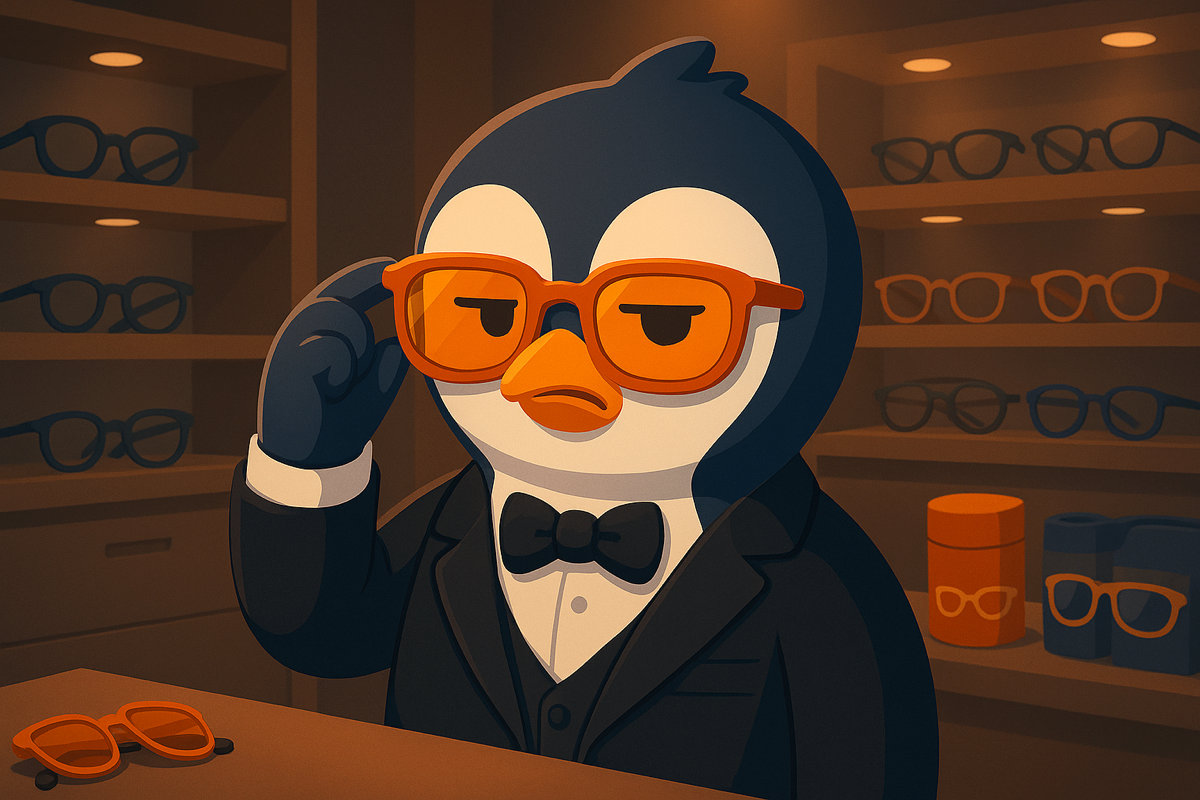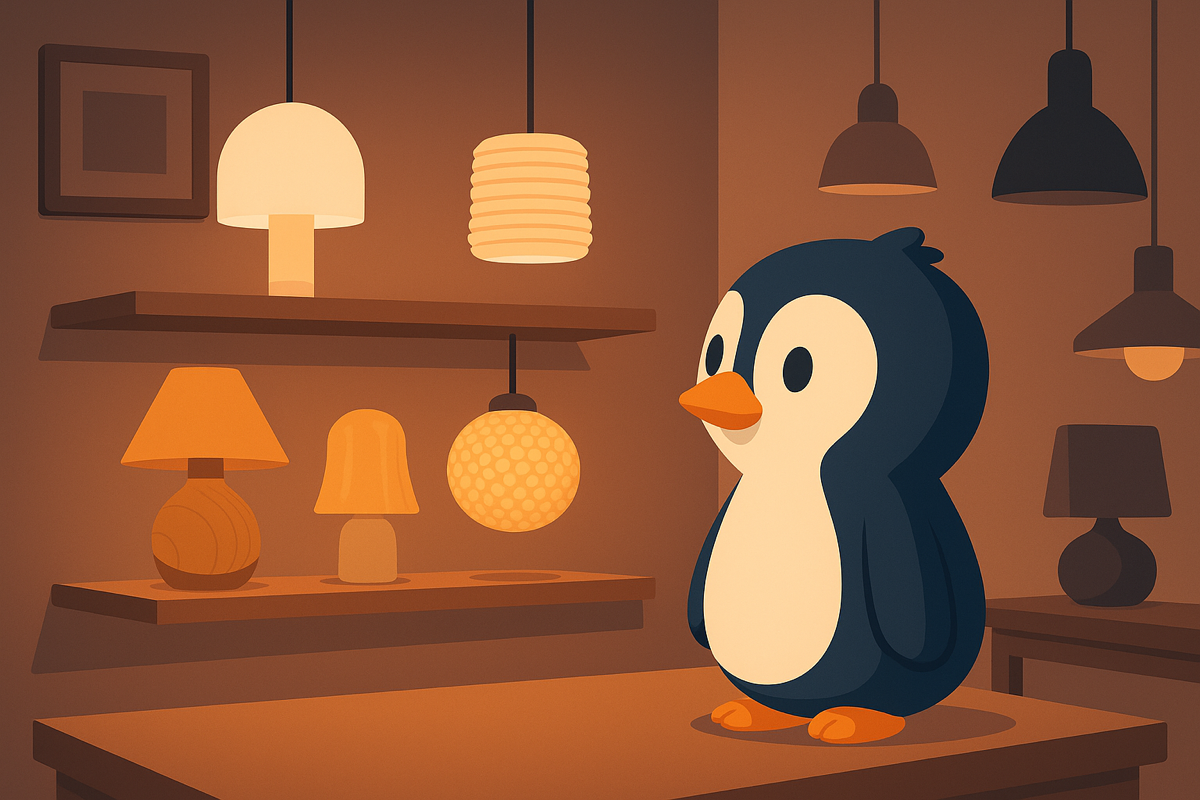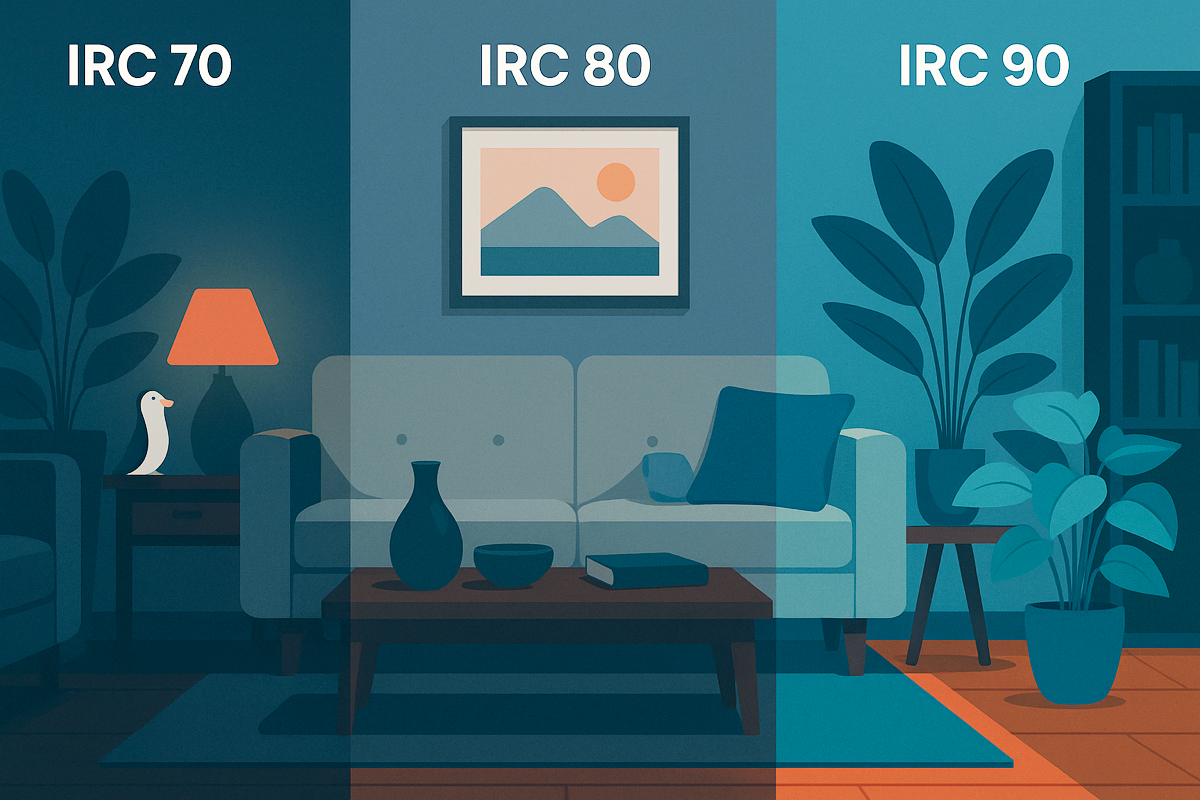Reading time: 5 min
What is a real solution against blue light?
Blue light blocking glasses have invaded our screens... to protect us from them. Between yellow filters, tinted lenses, and promises of miraculous sleep, these accessories are alluring, especially on binge-watching nights. But is filtering computer light enough to protect our health?
In this comparison, we pit three popular pairs of glasses against an often-overlooked solution: the lighting itself. Because the problem isn't the screen, it's the ambient light. And the real revolution isn't worn on the nose; it plugs into the ceiling.
📌 Summary
- ④ Amazon glasses (yellow lenses)
- ③ Barner glasses
- 2 Horus X Night Glasses
- 1. Circadian lighting Laqi
- Final verdict
- FAQ
🍫 Generic Amazon Glasses (Yellow Lenses)
Price: Around €15
- Advantages: Low price, real blue light filtering
- Cons: Questionable looks, variable comfort, partial effectiveness
- Automation: None, it's up to you to think about it
- Health impact: Reduces glare but does not correct the light environment
👉🏻 Good for testing, but not a long-term solution.
🥉 Barner Glasses
Price: Around €50
- Advantages: Sophisticated design, discreet transparent filters
- Disadvantages: Light protection, questionable effectiveness
- Automation: Manual, regular use required
- Health impact: Relieves eyes but does not regulate overall exposure
👉🏻 A nice accessory, but not a real health solution.
🥈 Horus X Night Glasses
Price: Around €70
- Pros: Very good filtering, well rated for sleep
- Cons: Highly visible orange lenses, limited social use
- Automation: Manual, to be set every evening
- Health impact: Acts on direct light but lets through light from the room
👉🏻 Great for the evening… if you remember to wear them.
But filtering light isn't enough. What's needed is to reduce exposure to blue light—and even to light in general. Even overly intense yellow light can delay sleep. And contrary to popular belief, screens aren't the worst culprits. The real source of exposure is home lighting. Ceiling lights, LED lamps, powerful spotlights... that's where the real problem begins. Hence the importance of tackling the source: the light bulb.
🥇 Circadian Lighting Laqi
Price: From €119 (starter kit)
- Advantages: Total automation, intelligent control via the central egg
- Disadvantages: Initial installation required
- Automation: Complete, based on biological cycles
- Health impact: Reproduces the sun's cycle for a global impact on sleep and alertness
👉🏻 No need to think about your glasses when your whole room thinks for you.
🏆 Final verdict
Glasses can provide occasional relief, but they're no substitute for a truly appropriate lighting environment. Circadian lighting, on the other hand, radically transforms your exposure to light, effortlessly. Laqi wins hands down in this comparison, combining health, comfort, and smart usage.
💬 FAQ
Do blue light blocking glasses really work?
Early studies are very mixed. There's no evidence that they significantly improve sleep. However, much research agrees on one point: it's important to reduce exposure to artificial light, especially in the evening.
Why do we talk about circadian lighting?
Because it follows the natural cycle of daylight: cool white in the morning, warmer at the end of the day, very soft in the evening. All automatically, without you having to manage anything.
Are glasses still useful?
They can filter out some direct blue light, but they don't solve the main problem: the harsh, unsuitable light in your environment. This is where Laqi circadian lighting comes into its own.
